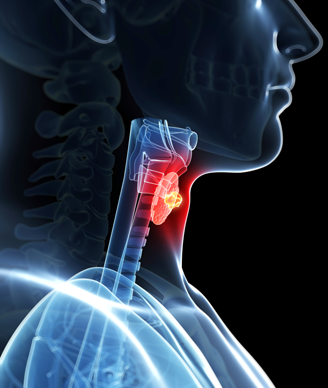Thyroid Cancer Rates Are Higher Among Transgender Female Veterans
Study shows a high prevalence of thyroid cancer in transgender female patients.
A study shows a high prevalence of thyroid cancer in transgender female patients.

Transgender female veterans are more likely to have thyroid cancer, according to a study conducted by endocrinologists at the University of California (UC) Davis Health.The analysis is the first to show evidence of the role of exogenous estrogen in thyroid cancer development and estrogen receptor upregulation in tumorigenic mutations.1
After observinga prevalence of thyroid cancer among transgender female patients through clinical observation, a study was prompted by cliniciansin order todetermine if this is an issue in a larger population. The study showed that thyroid cancer was diagnosed in 0.341% (95% CI, 0.22%‐0.46%) of transgender patients.2
“We are being cautious with our findings, but further research is needed to ascertain the role of estrogen gender‐affirming hormone therapy and thyroid cancer,” lead study author Hiba Tariq Basheer, MD, ECNU, CCD, health sciences assistant clinical professor of endocrinology, diabetes, and metabolism at UC Davis.
Research was conducted based on the Veterans Administration Informatics and Computing Infrastructure database. Investigators analyzed the data of patients seen at all Veterans Health Administration sites across the United States from January 2017 to January 2022, patients with an ICD‐10 diagnosis code for thyroid cancer, and patients who received an ICD‐10 diagnosis code for gender dysphoria or were assigned male at birth and had ever had an estrogen or estradiol prescription. Out of the roughly 9 million patients seen between 2017 and 2022, 9988 were determined to likely be transgender women. Of those patients, 34 were diagnosed with thyroid cancer, signifying a 0.34% prevalence among transgender female patients.
Of these 34 patients, 29 had papillary thyroid cancer, 7 had follicular thyroid cancer, and 3 had Hürthle cell carcinoma. Eleven of the 34 patients (32.3%) were receiving gender‐affirming hormone therapy at time of diagnosis. Treatment began an average of 6.85 years (± SEM 3.81) before diagnosis.The average age of the patients at thyroid diagnosis was 53.8 years (± SEM 2.61).
Prevalence of thyroid cancer among patients who were assigned female at birth is 0.44%, and the rate among those assigned female at birth is 0.19%, according to the National Cancer Institute. Thyroid cancer is diagnosed 3 to 4 times more in women than in men, though biological reasoning has yet to be found.
The study’s findings are limited due to the inability to include all possible transgender females. Further research is needed to compare thyroid cancer among a transgender female population with a cisgender male population and a cisgender female population to determine the role and mechanism of estrogen GAHT in the malignant transformation of thyrocytes.
References
- Connolly L. Study shows thyroid cancer is more common among transgender female veterans. News release. UC Davis Health. October 25, 2023. Accessed October 26, 2023. http://bit.ly/498yrwi
- Christensen J, Basheer H, Lado-Abeal J, et al.Thyroid cancer is more common among transgender female veterans.Thyroid.Published online September 15, 2023.doi:10.1089/thy.2023.29161.lb.abstracts